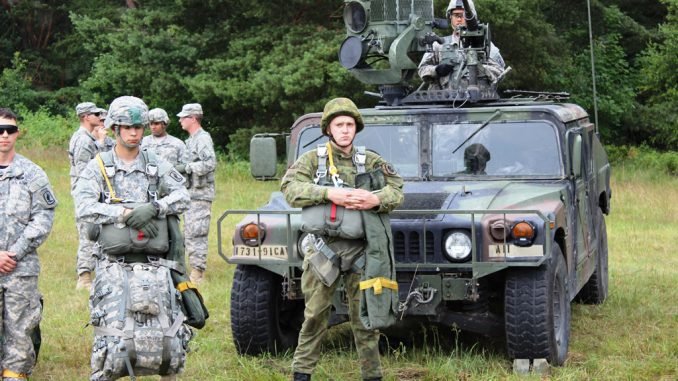
Houf, the commander of NATO Forward Integration Team, said in an interview to BNS that an analysis is carried out on a higher level in NATO about larger exercises in 2015, with the planning adjusted to Russia’s tactics and strategies.
“There will be a continuous increased presence for training and exercise purposes not only in Lithuania but in the complete Eastern part of the Alliance, in fact. It’s only the beginning. That’s an effort that we want to continue over time. It’s not only until the end of this year, for example, but we are already studying at the higher level within NATO as well to have that kind of activity being increased in the coming years and have it fully integrated in our annual training and exercise program,” said Houf.
“We think about how we could refocus our exercises, making those exercises more adaptable to the current crisis, to the new security environment that we are seeing, to the security paradigm shift, to the tactics and techniques and strategy that has been applied by the Russians for example, how we can improve our reaction and our readiness to that,” he told BNS.
In Houf’s words, the latest developments in Ukraine should be titled a “hybrid war” involving unconventional forces and modern technologies including the social networks.
“Until recently, and that’s my personal opinion, I don’t think that NATO was very capable of dealing with that, but rapidly we are making an enormous progress in those domains, and also use social media means and the information domain to send out our messages to assure allies for example to deter Russia from further aggressing Ukraine,” said the Belgian officer.
The Houf-led team this week inspected the Lithuanian military infrastructure in Vilnius, Kaunas, Klaipėda, Šiauliai and Rukla, with visits still planned to Pabradė and Nemenčinė.
NATO delegations have already held such type of visits to Slovakia and Poland and are planned to Estonia.
The NATO officer stressed that NATO’s military presence in Eastern countries will be one of the key issues at the Alliance’s summit in Wales in September. In his words, defence plans are already being revised, with plans in connection to forces of rapid deployment and possibilities to station equipment in member-states.
“In case of crisis, every nation of the Baltic states can be reassured that NATO will be here to stand by them. That’s part of the assurance and at the same time of the deterrence to Russia. We are in defensive alliance and we will do what is needed to defend our people, our population. Hopefully we will find a political solution for the ongoing crisis, we have to be ready for the worst case as well, and that’s why we are training for and preparing for,” said Houf.
NATO has stepped up its presence in the Baltic states and other nations in the region in response to the Russian aggression in Ukraine.

Be the first to comment